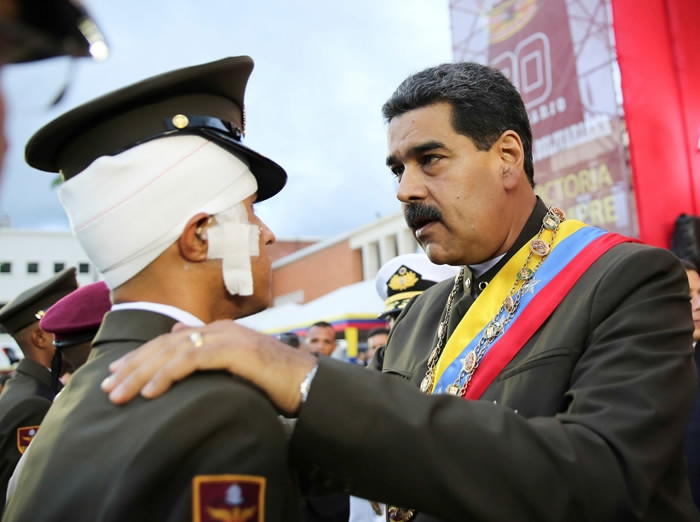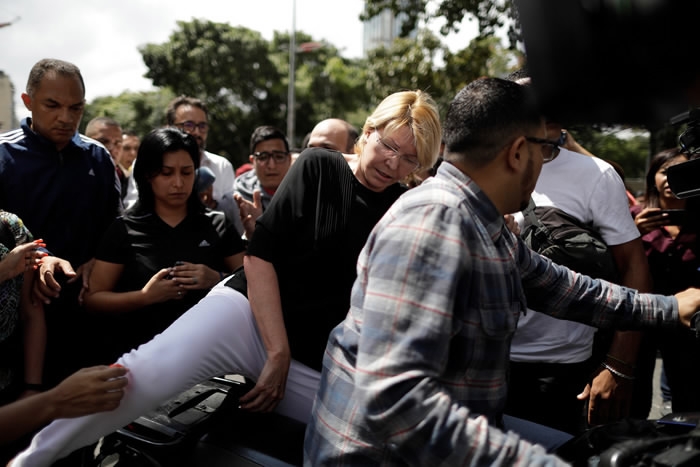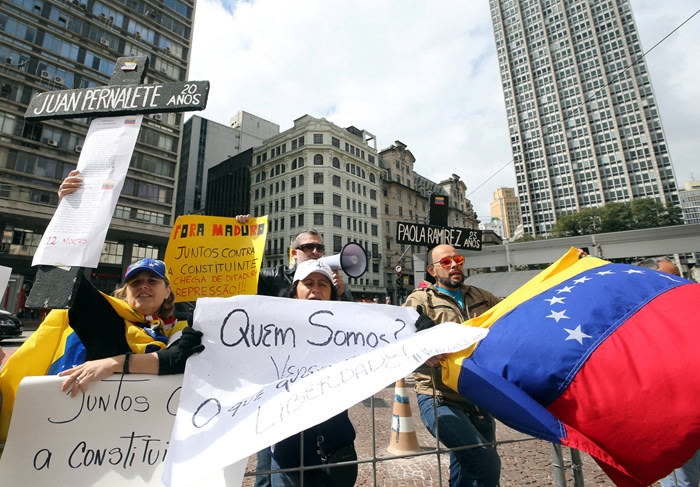Venezuela's chief prosecutor was fired on Saturday and ordered to stand trial, less than 24 hours after a newly elected legislative superbody was installed with sweeping powers.
The prosecutor, Luisa Ortega, had become President Nicolas Maduro's main challenger from within the ruling socialist movement since the opposition started a round of protests in April. The street marches have left more than 120 people dead as rock-throwing protesters were met by rubber bullets, water cannon and tear gas.
Ortega accused Maduro of human rights abuses and of exaggerating the turnout in last weekend's election of the new 545-member Constituent Assembly. The opposition, in control of the country's traditional congress, boycotted the vote. This guaranteed that all candidates for the new body would be Maduro allies.

Venezuela's President Nicolas Maduro (R) decorates an injured National Guard during a military parade to celebrate the 80th anniversary of the National Guard, in Caracas, Venezuela, August 4, 2017. /Reuters Photo
The Supreme Court sent a letter to the assembly informing it of an indictment against Ortega, accusing her of "alleged commission of serious misconduct," without further outlining the charge.
Earlier in the day, Ortega's office was surrounded by armed National Guard officers who refused to let her enter. Ortega told reporters she was roughed up as she tried to enter her office, claiming that one officer hit her with his body shield. She left on a motor bike amid the chaos.
Mercosur suspends Venezuela
Also on Saturday, South American trade bloc Mercosur indefinitely suspended Venezuela, adding to international pressure on Maduro to dismantle the newly created assembly and restore democracy.
The Constituent Assembly replaced Ortega with Maduro's human rights ombudsman, Tarek Saab, a government ally who the opposition says has turned a blind eye to state abuses.

Venezuela's Chief Prosecutor Luisa Ortega gets onto a motorcycle after a flash visit to the Public Prosecutor's office in Caracas, Venezuela, August 5, 2017. /Reuters Photo
Critics blame Maduro's state-centric policies for pushing Venezuela into an economic crisis marked by triple digit inflation and severe shortages of food and medicine.
Maduro says the US "empire" is waging economic war on Venezuela and refuses to allow humanitarian aid to enter the country.
He says the new assembly is the only way to unify Venezuela into a peaceful, prosperous socialist state.

People protest against Venezuela's Maduro government during a meeting of South American trade bloc Mercosur foreign ministers in Sao Paulo, Brazil, August 5, 2017. /Reuters Photo
The assembly will function for up to two years, according to a resolution it passed on Saturday. The body's stated goal is to lock in the policies of late President Hugo Chavez, who put Venezuela on its socialist path when he was first elected nearly two decades ago.
A US State Department official said on Saturday that the United States was "deeply concerned" by reports that Ortega had been removed from office and banned from leaving the country.
"The United States urges the re-establishment of democracy in Venezuela and the restoration of the prosperity that Venezuelans have fought so hard to achieve," the official said.
(Source: Reuters)
Related stories:
Venezuela's public prosecutor's office under 'siege' by military
Cuba backs Venezuela as its economy is heavily dependent on subsidized Venezuelan oil
What happens next in Venezuela after the controversial vote?










